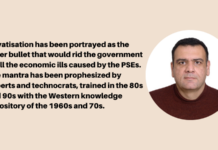The International Monetary Fund (IMF) has urged Pakistan to enforce the Supreme Court’s 2013 ruling that requires parliamentary approval for supplementary grants, along with conducting a special audit of such grants issued over the past decade to improve fiscal transparency and accountability.
In its report on Pakistan’s budget practices, the IMF highlighted the need for stricter legislative scrutiny, recommending amendments to laws, including Article 84 of the Constitution, to align with the Supreme Court’s decision.
The IMF noted that the government’s 2014 petition challenging the Supreme Court’s judgment was dismissed, removing legal hurdles to its implementation. It also called for the Auditor General of Pakistan (AGP) to audit supplementary grants issued in the last ten years to evaluate their effectiveness.
The ruling mandates that supplementary budget statements undergo the same approval process as the annual budget, including prior approval from the National Assembly.
The report revealed that in fiscal year 2022-23, supplementary grants accounted for over 50% of budget spending, undermining parliamentary oversight and fiscal discipline.
“This reliance on supplementary grants and technical virements deviates from international best practices and compromises legislative scrutiny,” the IMF observed.
The lender pointed out that Pakistan stands out globally for its weak parliamentary oversight of supplementary grants. It highlighted the finance ministry’s role in encouraging this practice, citing an example where Rs5 billion in supplementary grants were sought for hosting the Shanghai Cooperation Organisation summit in Islamabad despite prior knowledge of the event.
The IMF emphasised the need for fiscal reforms, noting that public debt consumes 60% of budgeted revenues. It also criticised the dual budgeting system, where development and recurrent expenditures are handled separately, leading to inefficiencies.
The report further noted Pakistan’s persistent fiscal deficits, which exceeded budgeted targets by an average of 25% between 2017 and 2023, and highlighted inefficiencies in the Public Sector Development Plan (PSDP) pipeline.
























